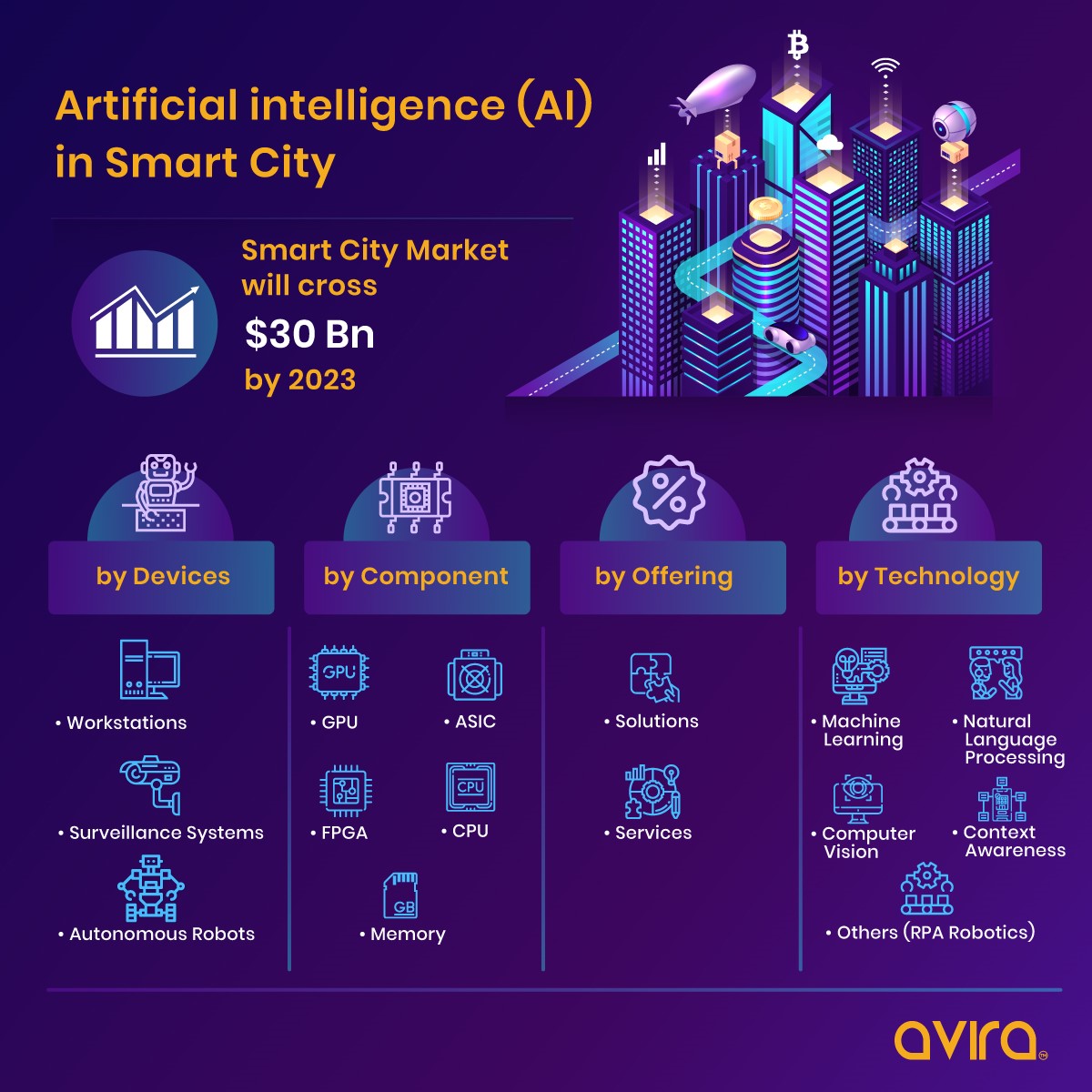FABRIC forecasts the global AI-enabled Smart City Industry to cross $30 Billion marks in the next 3 years.
The Smart Cities ecosystem is based on 6 blocks, which are – Energy, Mobility, Security & Surveillance, Construction (Building and Homes),
Water, and Social Infrastructure. Based on the country’s priority, these blocks are prioritized by governments. In one of the consulting
projects, FABRIC had forecasted that technology investments related to Smart Cities are expected to cross the $200 billion mark by the end
of 2023. However, the COVID-19 pandemic has restricted the growth rate of Smart Cities updated FABRIC’s forecast states that $192 billion worth technological investment will be made by the end of 2023.
AI-enabled Smart City projects are expected to boost the contribution of Start-ups in success stories. In each Smart City project, you can spot 1 or 2 start-ups contributing innovatively, but such integration usually forces Start-ups to sign a partnership or collaboration with Tier 1 player to win or qualify for the project. Well, strategically speaking, this condition is practiced to mitigate risk, which is makes planning full proof. By 2035, 70% of the world’s population will be living in cities. By the end of 1975, there were only 3 smart cities- New York, Tokyo, and Mexico City; however, by the end of 2025 on paper, there will be 50 smart cities across the globe. If you map the timeline, you can see that in 50 years, we have added 45+ smart cities. Time-series extrapolation of investments demands side analysis of revenues and supply-side analysis of shipments/deployments state that by the end of 2023, Smart City Market will cross $800 billion marks. AI technologies like Machine Learning, Deep Learning, and Contextual Awareness are expected to empower the traditional set of technologies like Machine Vision, Computer Vision, M2M Connectivity, Telematics, Infrastructure Networking, etc. Because of such technological empowerment, AI’s integration for the Smart City market is expected to reach $30 billion by the end of 2023.

The backbone of Smart Cities is networking and connectivity; communication platforms form a communication layer in the architecture, which communicates with sensors and modules, and then the role of ISVs starts in this ecosystem. End to end operations of projects are handled by EPC companies and they act as Integrators in this complete mechanism. The next-gen analytical company is a new kid in this block. These companies highlight the importance of Analytics as a "Must to have service" than "Good to have service".
Companies present in this ecosystem varies from country to country. However, globally companies like Cisco, IBM, Hitachi, Schneider, and Microsoft are big wigs in this market, and hence these companies have significant importance in the ecosystem of Smart Cities.
FABRIC has analyzed AI-enabled Smart cities ecosystem and offers 7! cross segments. Avira’s market intelligence platform FABRIC has synchronized 235 high importance market activities using Machine Learning and Data Science Algorithms. We would love to exchange our methodology, datasets, and observations on the quick demo of FABRIC.
About AviraInsights Technologies:
AviraInsights is a market intelligence company. We have synergised our strengths of Information Technology, Consulting and Market Research to build our proprietary platform that helps our clients in effective decision making. Driven by a vision to be a one-stop business partner to all the growth and expansion plans of its clients, AviraInsights has built an alliance base to make the Intelligence-data not just academic, but actionable. Understanding business in its entirety on the back of the decades of experience of the Management team, the company strives to empower its clients by providing an Access to research, Analysis of key dynamics, Evaluation of market data, Application of it to business objectives.
Contact Us:
Rohan S
5890 stoneridge Dr, suite 216,
Pleasanton CA 94588
Phone
Email :
Website :